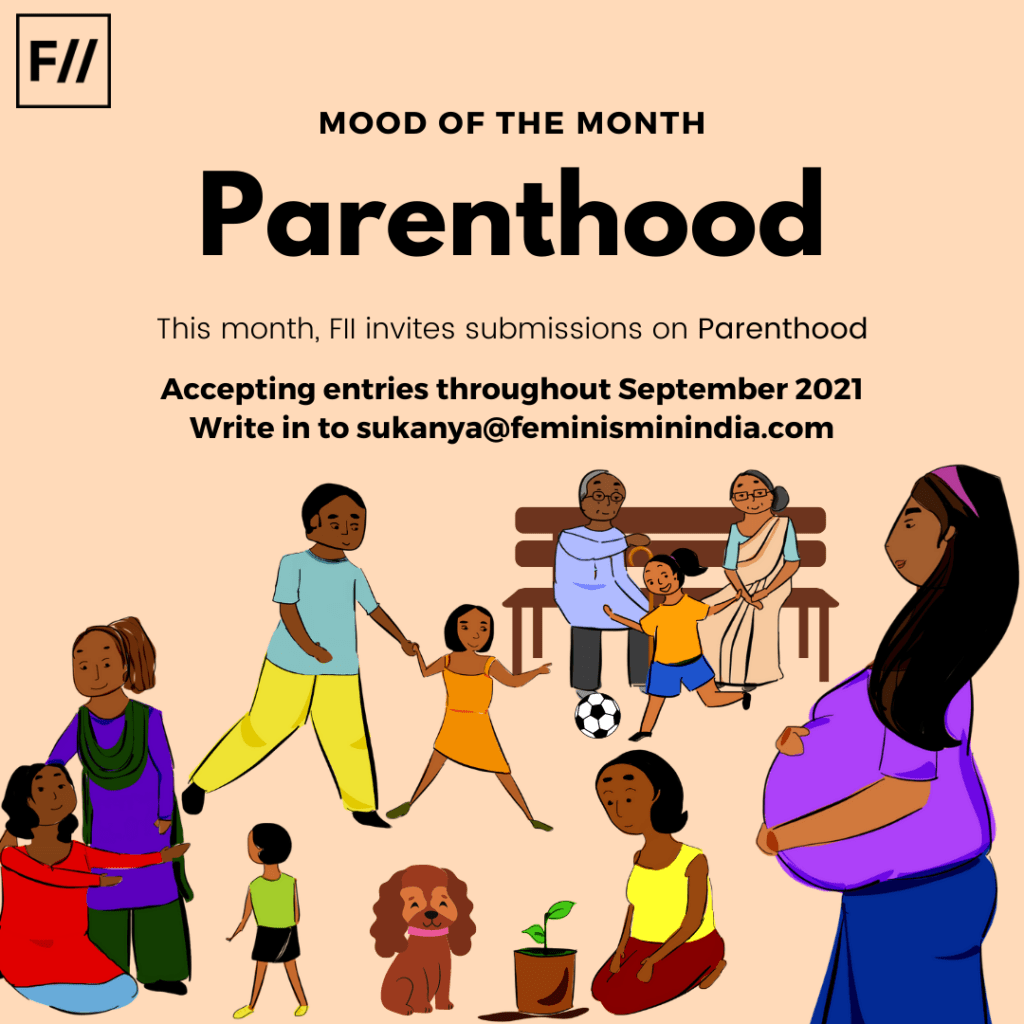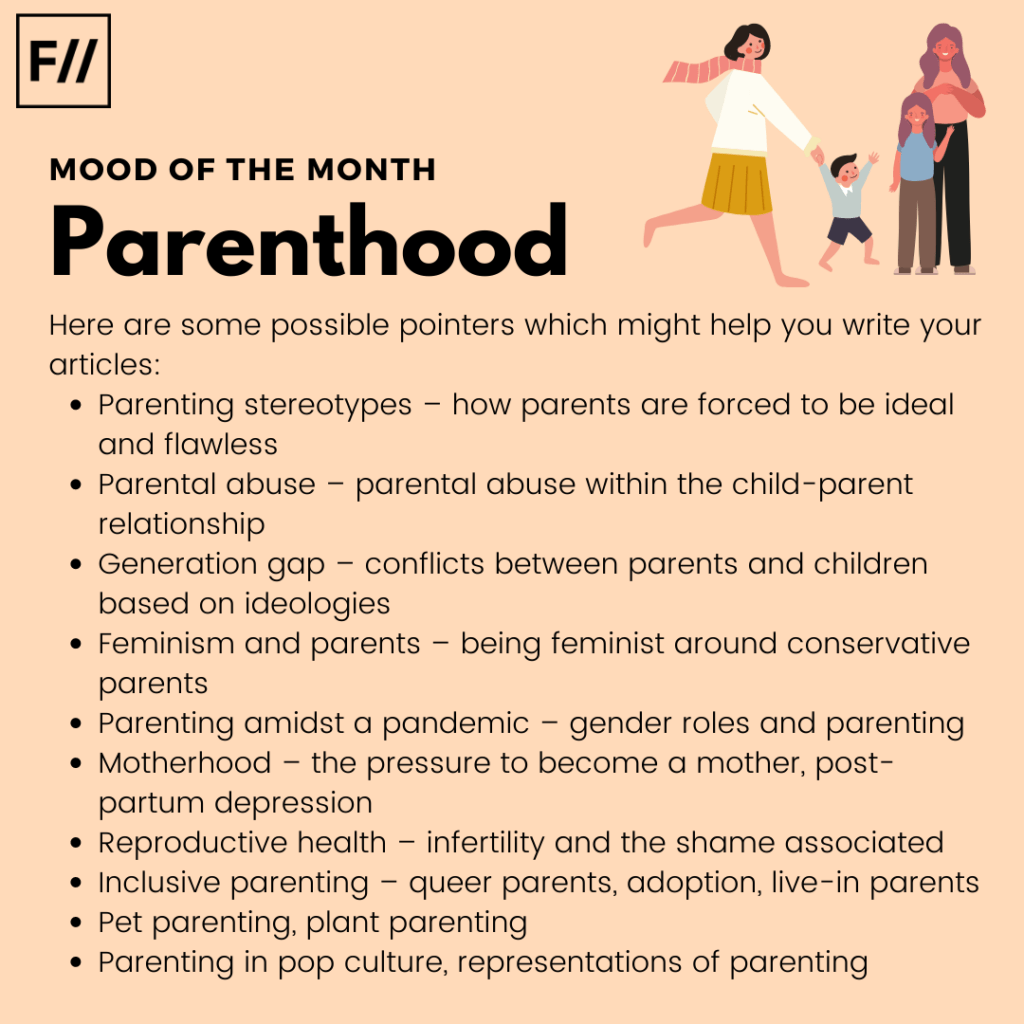Parenthood is a role that involves emotional, physical, material, social and economic layers. In our society, it is also positioned as one of the most important, revered phases in the life of an individual.
Traditionally, families are considered as the most basic units of a society, and parenting plays a crucial role in moulding individuals. It sets the tone for the foundation of one’s thoughts, and the good and bad experiences from parents shape a person’s general outlook towards life.
Since parenthood is considered to be such an important aspect of a person’s life, people also face a lot of stigma regarding their parenting choices. Right from deciding whether or not to be parents, to structuring their lives around their off springs, parents are put under tremendous pressure to be ideal versions of themselves.
The society’s binary ideas of heterosexual parenting, combined with other intersectionalities like caste and class create a very unaccommodating construct of who can be parents and how parents must function. The absence of sensitive policy frameworks combined with the moralistic attitude towards women, their bodies and procreation, give rise to various tangents of parenthood that need to be addressed at different levels

The pandemic has only added to this mix because parents no more have alternative spaces like schools to rely on for child care and upbringing. The home has doubled up as an office, classroom, lounge, and space for rest. With no house help or any other support system, the pandemic has also brought out the gendered assignment of parental roles. Women are expected to care for children, be the nurturers and make extra sacrifices even as their professional deadlines and other chores pile up.
The lockdowns have also shone some essential light on parental abuse. Homes are seldom safe spaces for those living with parents who are proprietary, abusive or simply dismissive of the opinions and tastes of their children. The domestic space becomes toxic when these dynamics remain compressed within a house, with no possibility of stepping out or meeting other people.
The society’s binary ideas of heterosexual parenting, combined with other intersectionalities like caste and class create a very unaccommodating construct of who can be parents and how parents must function. The absence of sensitive policy frameworks combined with the moralistic attitude towards women, their bodies and procreation, give rise to various tangents of parenthood that need to be addressed at different levels.
Also read: Reclaiming Motherhood: Parenting Beyond Gender

In this context, we at Feminism In India invite your submissions on Parenthood, throughout September 2021. We hope to add to the conversation on the various aspects of being parents and having parents, through personal essays, critical analysis, and articles discussing the different layers of the topic.
Here are some possible concepts within the theme that may help you write your submissions:
- Parenting stereotypes – how parents are forced to be ideal and flawless, the pressure on parents to accommodate opinions of others in parenting, the good parent-bad parent trope, narratives about how parents are supposed to behave
- Parental abuse – parental abuse within the child-parent relationship, guilt tripping kids, using parental sacrifice as a reason to put the child on leash, parental facilitation of emotional and physical abuse in families, generational trauma
- Generation gap – conflicts between parents and children based on ideologies, parental hierarchy and barriers to open communication, parents and technology, generational differences in handling life
- Feminism and parents – being feminist around conservative parents, body shaming by parents, personal choices, privacy and parental interference, being feminist parents, the challenges of raising feminist children
- Parenting amidst a pandemic – gender roles and parenting, being part time teachers and full time companions to kids during lockdowns, navigating difficult emotions with children, coping with health anxiety while maintaining a positive environment at home for kids
- Motherhood – the pressure to become a mother, post-partum depression, navigating physical and emotional roadblocks, support system for mothers, shaming of mothers for their child rearing choices, breastfeeding and social stigma
- Reproductive health – infertility and the shame associated to it, moral policing by doctors, pregnancy myths, the stigma around abortion, women’s bodies as wombs, contraception, lack of sex education, alternate birthing options
- Inclusive parenting – queer parents, legal and social barriers to homosexual parenting, adoption, gender non confirming parents, traditional parenting roles and choices of individuals, live in couples and parenting
- Social media and parenting – parenting influencers, digital parenting resources, alternative parenting techniques, support groups
- Pet parenting, plant parenting, parenting as an act of love and care outside prescribed social norms
- Parenting in pop culture, representations of parenting in literature/entertainment/cultures
This list is not exhaustive. Please feel free to write on other topics within the theme that we may have missed listing here.
Some of these topics are extremely personal in nature, and if you wish to maintain anonymity with respect to publication of such pieces, kindly mention in your email.
You may send us your submissions to sukanya@feminisminindia.com
We look forward to your pieces and hope you enjoy writing them!
Also read: Abraham Maslow And Indian Parenting: Does Every Parent Deserve A Child?
Featured Image: Ritika Banerjee for Feminism In India
About the author(s)
Feminism In India is an award-winning digital intersectional feminist media organisation to learn, educate and develop a feminist sensibility and unravel the F-word among the youth in India.




